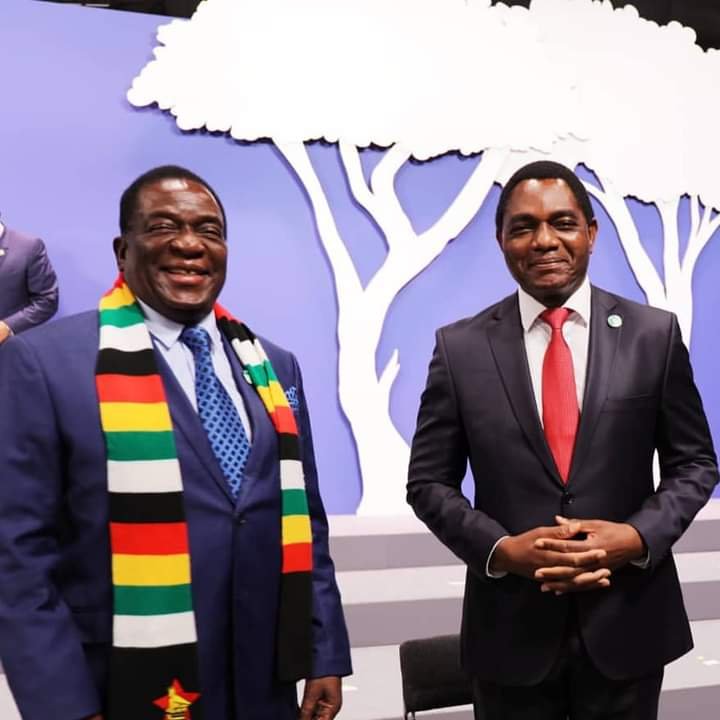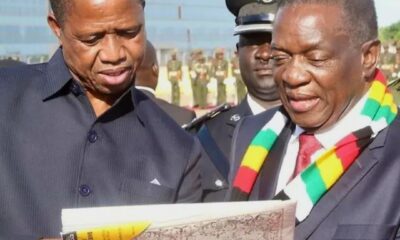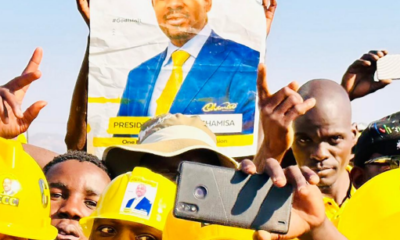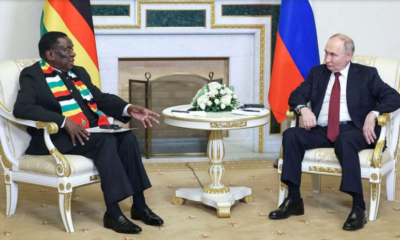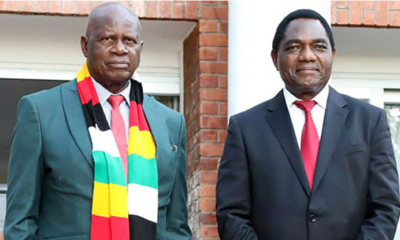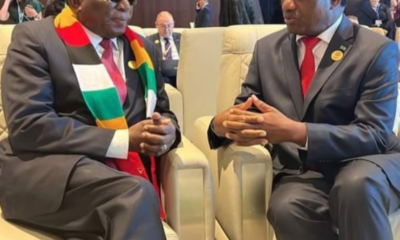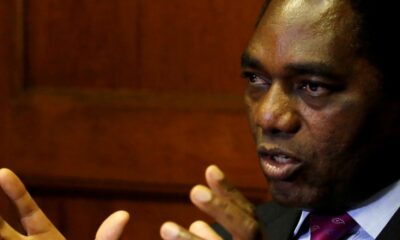BRENNA MATENDERE
ZAMBIAN President Hakainde Hichilema made his own piece of history when he took a principled stand against election fraud and human rights abuses in the Southern African Development Community by refusing to attend the Sadc summit in Harare.
Sadc leaders normally prioritise fraternal brotherhood and solidarity based on liberation history and turn a blind eye to electoral fraud and rights abuses.
As if to confirm this bond, Malawian President Lazarus Chakwera in an interview with international broadcaster Deutsche Welle (DW) in Germany recently said the bloc’s leaders “do not call each other names”.
Chakwera reiterated that the concluded Sadc summit was not a platform to rein in President Emmerson Mnangagwa over human rights abuses, “but rather address issues of governance and democracy in a broader manner.”
In the lead-up to the summit, Mnangagwa’s government had faced international scrutiny over its crackdown on pro-democracy activists and opposition supporters who were suspected of planning demonstrations during the Sadc summit.
Over 100 activists remain detained in remand prison, with repeated attempts to secure bail hitting a snag.
Sadc leaders appeared to avoid a confrontation with President Mnangagwa on the arrests when they converged on Harare for the summit.
“We look at the picture. And so in the resolutions, we insisted that we put issues to do with governance, issues to do with democracy, and issues to do with human rights. We are not necessarily, in that summit of heads of state, calling each other names,” said Chakwera.
“We had followed the kind of advice we always do when our ministers meet and they make recommendations, and then we said, this is the best way to do that. And so we discussed these in general terms, but not necessarily to say, can you stand up and tell us about one or two things in your country, even though there may be times when such things get talked about.
Chakwera added: “But it’s usually through a programme and an agenda that has been vetted by officials and then ministers and then the recommendations made, and we discussed those recommendations.”
Human rights watchdogs blame Sadc for a deafening silence amid the onslaught on dissent in Zimbabwe. Jailed tourists and snatched activists turned into public relations nightmare for Zimbabwe ahead of the Sadc summit.
Critics and political observers accused Sadc of turning a blind eye to the shrinking democratic spaces in member states. Zimbabwe, Tanzania, Angola and Eswatini are some of the countries that have a poor track record of upholding democratic tenets. Chakwera, while not providing specific details, confirmed he had held talks with Mnangagwa over the human rights violations.
“I had heard about it, and sometimes I talk with my brother, and it’s not necessarily for public consumption because that’s a stance that I have taken, dealing with each one of my brothers in southern Africa,” Chakwera said in the DW interview. Zambian President Hakainde Hichilema
“I personally take responsibility to discuss such, even when it is not necessarily for the media.”
However, unlike the other Sadc leaders, Hichilema stood firm and, despite boycotting the summit, he dispatched Mnangagwa’s fierce critic Mulambo Haimbe to attend the 44th Sadc summit in Harare.
Haimbe, Zambia’s minister of Foreign Affairs and International Cooperation, protested and called for immediate and decisive action from regional bodies such as Sadc and the African Union to address what he termed an “unwarranted attack on Zambia’s sovereignty” after Mnangagwa accused Lusaka of being a client state of the United States of America.
While in Russia for the St Petersburg International Economic Forum, Mnangagwa, unaware that his discussions with Russian President Vladimir Putin would be released to the media said: “The Americans are consolidating their power in that country [Zambia], both in terms of security and in terms of financial support to make sure that we feel lonely.”
In his discussion with Putin, Mnangagwa appealed for military support from Russia as well as food, as he appeared to mark Zambia as a regional security threat to Zimbabwe.
He invited Putin and Russia to “participate in our economy, especially in the mining sector and agriculture,” adding: “There is a lot that we can afford for you to participate. And in that process, the West will run away… We cannot go to the West; we have to come here because the West would want to see us down. They support our neighbours, Zambia and Malawi, very heavily.”
“But in spite of that, Zimbabwe’s economic growth is the fastest growing economy in the region, in spite of us being isolated by the Americans.”
Mnangagwa requested Putin’s support “especially in the area of defence and security as well as food security.”
Haimbe hit back during a televised speech in Parliament, rejecting Mnangagwa’s statement and describing the utterances as “an unwarranted attack on Zambia’s sovereignty.”
He also said Lusaka, which has historically strong ties with its southern neighbour Zimbabwe, wants to maintain cordial relations with it, the US and Russia.
“For example, in March this year, Zambia was one of the first countries that called the United States of America, and the European Union to remove sanctions against Zimbabwe when the United States of America imposed new sanctions.”
Haimbe said. “Regrettably, however, madam speaker, the sentiments expressed by his Excellency President Mnangagwa do not appear to accord with the warm relations highlighted above.”
As the Sadc leaders trooped out of Harare, their resolutions sparked widespread debate among observers over the effectiveness of the regional bloc.
